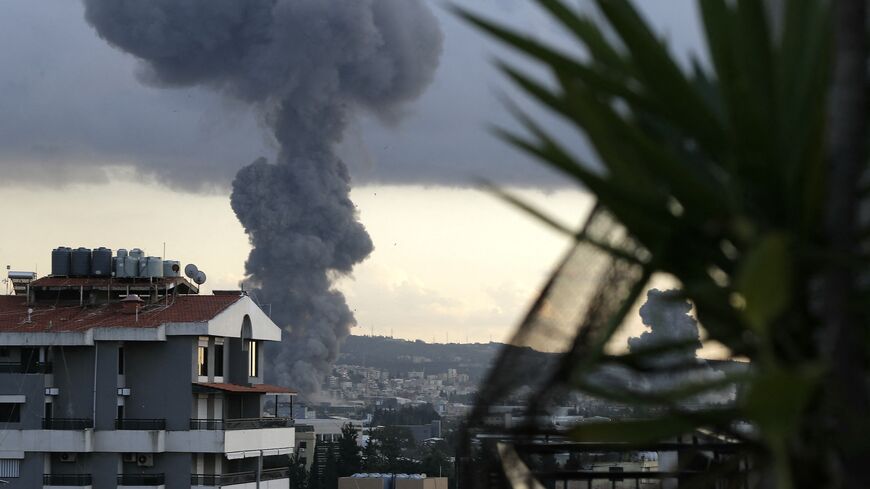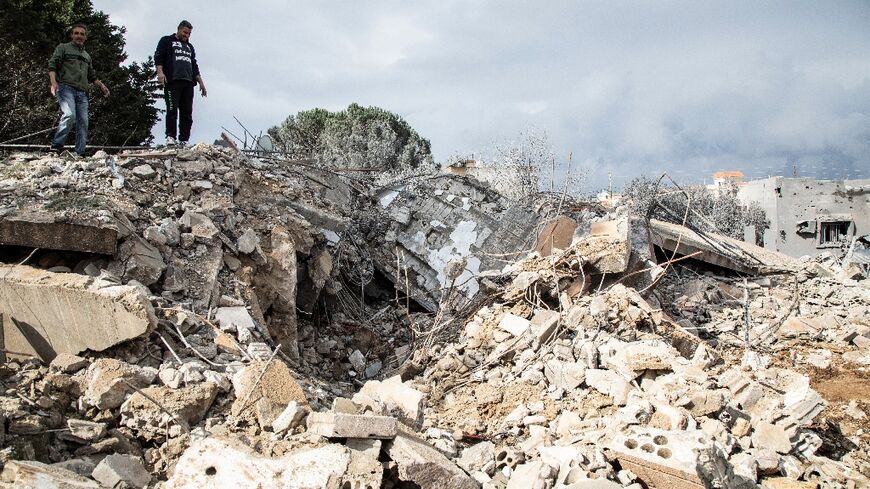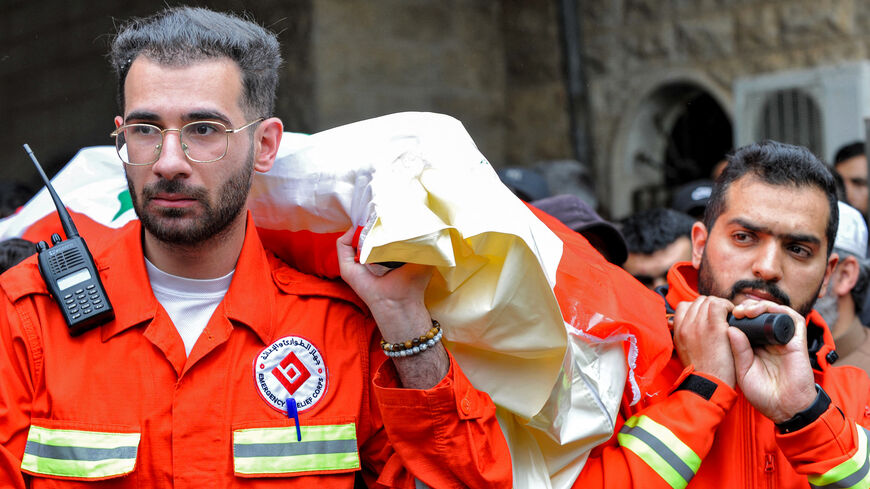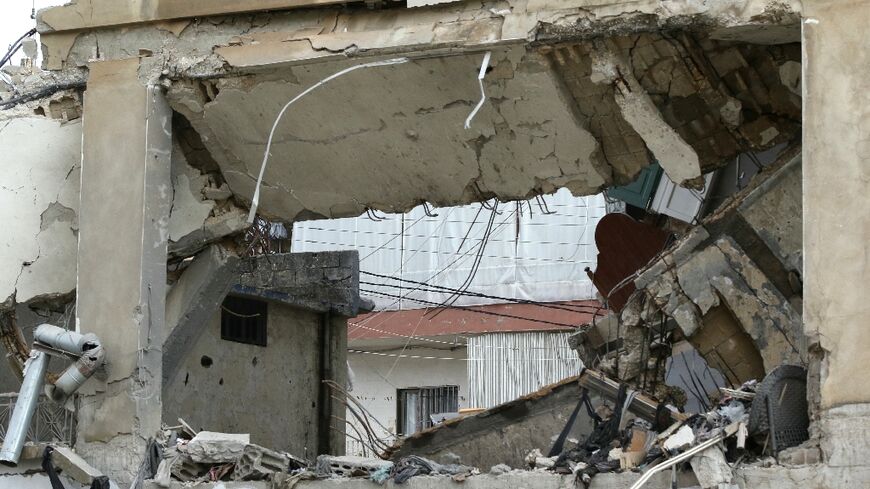Hezbollah says Israel will pay in ‘blood’ as cross-border fighting intensifies
The fire exchanges that have been ongoing between Lebanon’s Hezbollah and Israel since October have intensified this week, raising fears of a full-blown conflict.
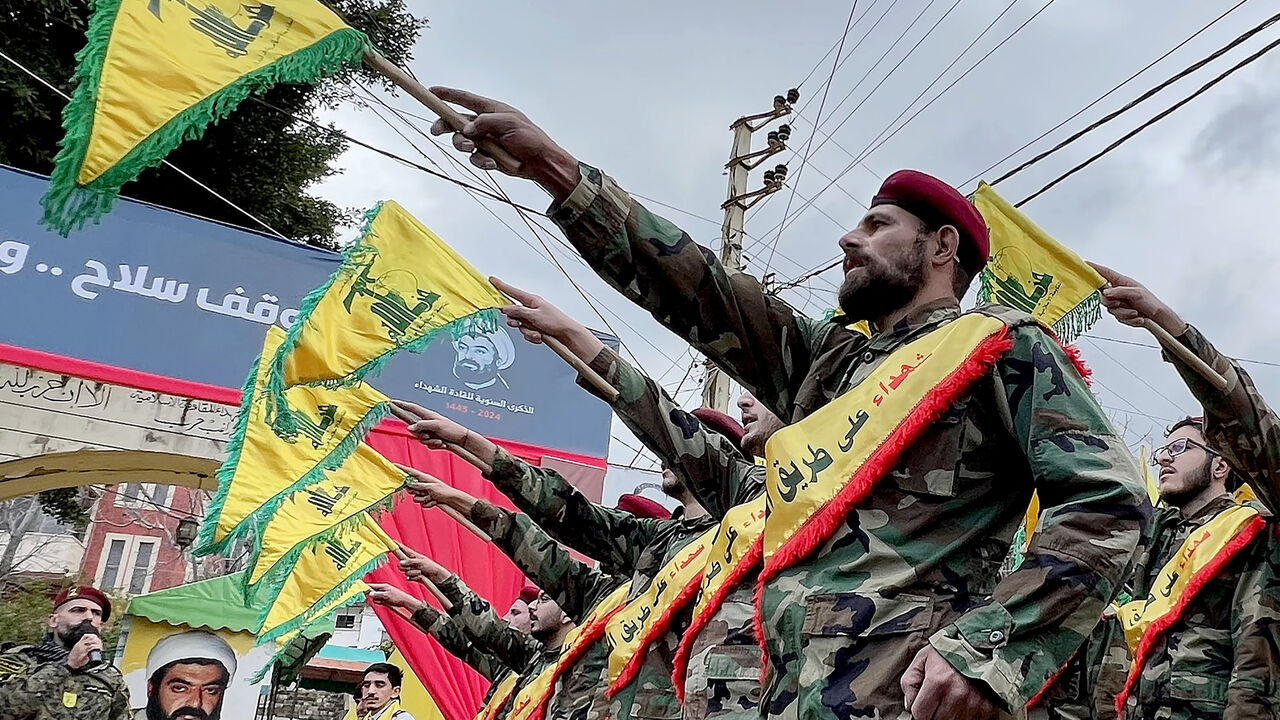
The leader of Lebanon’s paramilitary Hezbollah movement vowed on Friday that Israel would “pay in blood” for the deaths of civilians in the country’s south this week. The heavy Israeli strikes that killed them marked an alarming turn of events since the movement entered into tit-for-tat clashes with Israel in parallel with the Gaza war in October.
In a televised speech, Hassan Nasrallah praised the resilience of the Lebanese resistance, a reference to Iran-backed Hezbollah, and reiterated his movement’s support for the Palestinians and the Gaza Strip.
Nasrallah's speech, his second this week and fifth since the cross-border hostilities began, comes after Israeli warplanes struck several villages in southern Lebanon overnight Thursday, killing several fighters from Hezbollah and its ally, the Shiite Amal movement, as well as a number of civilians.
Hezbollah announced the death of two of its fighters in the overnight airstrikes in a Friday statement. The Amal movement said in a separate statement that three of its fighters were killed in one of the strikes that hit a house in al-Qantara village.
Israeli military spokesperson Daniel Hagari said in a post on X Friday that Israeli forces had struck military infrastructure belonging to Hezbollah in al-Qantara, resulting in the death of several people. Hagari did not give the number of casualties.
Earlier on Thursday, Hezbollah said it launched a barrage of dozens of rockets toward the Israeli town of Kiryat Shmona near the border with Lebanon. No casualties were reported on the Israeli side.
In a statement, Hezbollah said the attack on Kiryat Shmona came in retaliation for Israeli strikes in southern Lebanon the day before that killed over a dozen people.
At least 10 civilians were killed in the strikes on Wednesday, in the deadliest day since October. Seven members of the same family, including a child, were killed when an air raid hit a building in Nabatieh. Another three people — a woman and her two children — were killed in the village of Sawwaneh, according to Lebanon’s state-run National News Agency.
In addition to the civilian casualties, three Hezbollah members were killed in Wednesday’s strikes.
The Israeli military said its fighter jets struck a building used by Hezbollah in Nabatieh, eliminating Ali Dibs, a senior commander in Hezbollah’s elite Radwan Force, and his deputy, Hassan Ibrahim Issa. Dibs, according to the army, was responsible for a bombing in Megiddo Junction in northern Israel last March that injured one person.
Hezbollah confirmed the deaths of the two fighters.
"The response to the massacre should be continuing resistance work at the front and escalating resistance work at the front,” Nasrallah said in his Friday speech, referring to the Nabatieh airstrikes. “Our women and our children who were killed on these days, the enemy will pay the price of spilling their blood in blood,” he warned.
Wednesday’s strikes came just hours after an Israeli soldier was killed in a rocket strike in the northern Israel town of Safed. Hezbollah did not claim responsibility for the attack.
Since the hostilities began Oct. 8, at least 228 Hezbollah and Amal fighters have been killed as well as 40 civilians, according to an AFP tally.
On the Israeli side, the army reports losses of 10 soldiers and six civilians.
Is new Israel-Lebanon war brewing?
The heavy cross-border fire exchanges this week have raised fears of a broader conflict between Israel and Hezbollah that had been so far limited to the border areas.
Israeli Defense Minister Yoav Gallant warned Thursday that the military has yet to fully unleash its full force, adding that it could strike deeper into Lebanon, reaching the capital Beirut or anywhere else.
“Hezbollah has gone up by half a click; we have gone up by one step — but that is one step out of 10,” Gallant said during a war simulation on the Lebanese and Syrian fronts.
“We do not want to enter into a war, but rather are interested in reaching an agreement that will allow the safe return of residents of the north to their homes, under an agreement process,” he added.
Nasrallah rejected Gallant’s threats, saying in his speech Friday that Hezbollah “possesses a massive and precise missile power that enables it to strike from Kiryat Shmona all the way to Eilat” in Israel's far south.
Many civilians and politicians in Lebanon have criticized Hezbollah for dragging the country into an unwanted war. The small Mediterranean nation is reeling under its worst economic crisis in decades, amid a presidential vacuum since the end of former President Michel Aoun’s term in October 2022, due to deep-rooted political rivalries that have hindered the election of a new head of state.
عندما كنا نحذر ونقول اننا لا نريد الحرب، كنا نتوقع هذا الدمار الشامل ل #جنوب_لبنان واستشهاد المدنيين الأبرياء… ولكن لم تسمعوننا وحتى إنكم هاجمتمونا وتهمتونا بأننا صهاينة! ونحن لبنانيين ولاءنا فقط ل #لبنان وقلبنا عليه من أقصى جنوبه إلى أقصى شماله! #لبنان_لا_يريد_الحرب pic.twitter.com/SkeKqZD0p7
— Karen Boustany كارن البستاني (@BoustanyKaren) February 16, 2024
The head of the Christian Lebanese Forces party, Samir Geagea, is a staunch critic of Hezbollah. He accused the movement of exposing Lebanon to destruction by engaging in cross-border fire with Israel.
During a meeting with the Russian ambassador in Beirut on Friday, Geagea condemned the ongoing Israeli offensive in the Gaza Strip, stressing his support for a two-state solution to resolve the Israeli-Palestinian conflict.
“How did Hezbollah help Palestinians in Gaza?” Geagea asked, adding, “What are the results of Hezbollah's attacks, except exposing Lebanon and its people to destruction and death?”
The UN peacekeeping force patrolling the border area between Israel and Lebanon expressed its deep concern over the recent escalation, calling on all concerned parties to immediately stop hostilities.
“Attacks targeting civilians are violations of international law and constitute war crimes. The devastation, loss of life, and injuries witnessed are deeply concerning,” UNIFIL spokesperson Andrea Tenenti said in a statement carried by NNA on Thursday.



